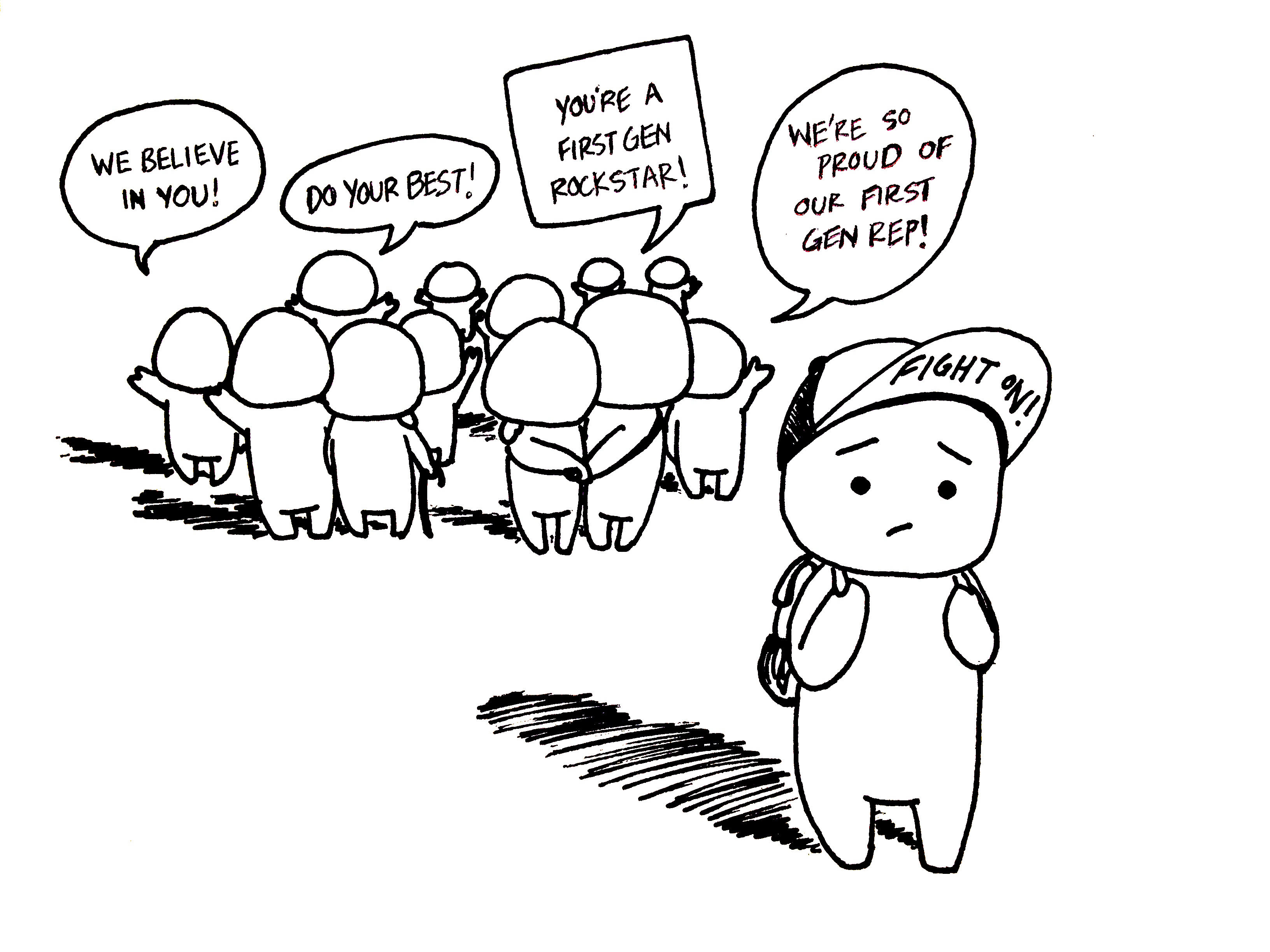Being a first generation college student
There are many adjectives which first-generation college students may use to describe themselves: fearless, proud and revolutionary are just some of them. For me, being a first-generation student means not only taking on the role of a leader in my own community but also challenging the ideals that have for a very long time been keeping many of us out of higher education.
The challenges for a first-generation college student are many. First of all, there is the financial aspect of higher education. At USC, there are grants and scholarships that can help one offset these costs. Even then, however, from my experience talking with my fellow classmates, this help is not enough to truly make us feel like the rest of our more privileged classmates. While the majority of our classmates have their parents’ financial support, some of us do not have that luxury simply because our parents cannot afford to do such or we do not want to place another financial burden on them. As a result, a great majority of my first generation classmates work in order to pay for school. This is not unusual or unexpected; however, this does create two inadvertent consequences that will affect students’ futures.
The first consequence is that a college student who works may not be able to allocate enough time working on homework, writing an essay or studying for exams. This can affect that student’s grades. The second, which I believe is more impactful, is that the student will not be able to create the connections or gain the necessary experience to advance his or her career. While this may not always be true, it certainly is for a great number of students.
Another barrier for first-generation college students is feeling alone in pursuing our dreams and aspirations. Certainly, there are many organizations out there to help alleviate these feelings of insecurity, such as SWAG To College, for which I am currently a mentor. However, it is clear that more needs to be done. At USC specifically, I believe there should be more support for first-generation students like myself so that we may be able to feel more comfortable with these new surroundings. I am looking forward to the day when there is a legacy of college attendance in minority families such as my own. When that day comes we as a society would have truly taken a step forward in educational equity and opened the doors for many more to shape the future of this country.


There should be a first generation club on campus. If there isn’t, start one. Studies show that first generation students success most when they have: 1) other first generation students (particularly ones who are one or two grade levels above them) helping them; 2) tutoring centers to catch up and fill in any gaps they have in math, writing or other skills; 3) mentors; 4) professors they can keep in touch with. They found that the first two are the most important.